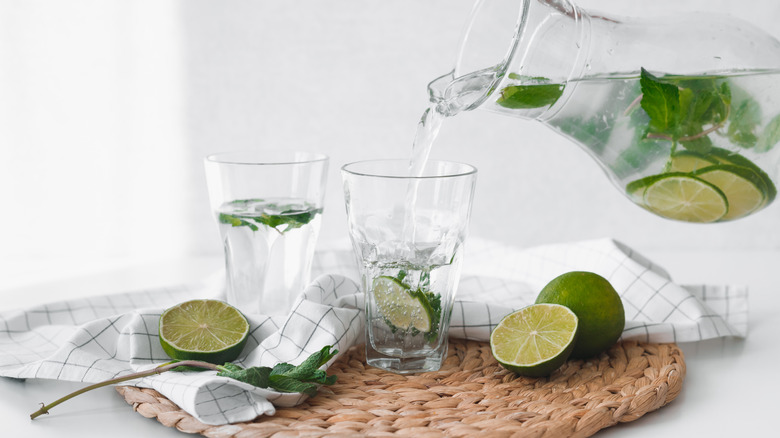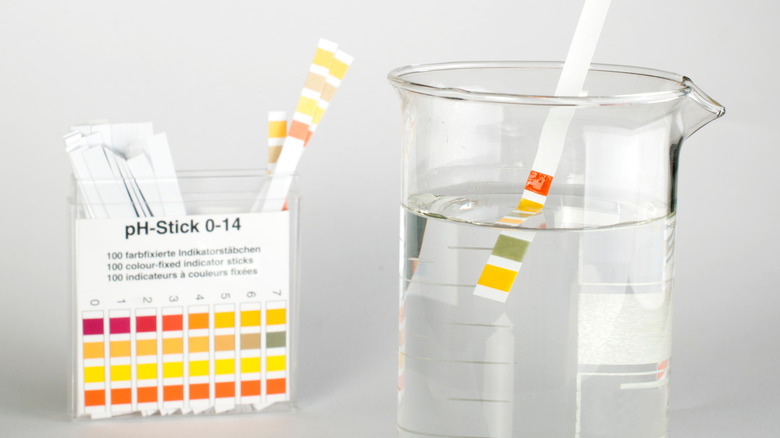What You Should Know Before Buying Alkaline Water
Water is the most essential liquid to sustaining our health and wellness. It covers about 70% of the planet's surface, and it typically makes up more than half of the human body. There are very few people that would debate the value of good, clean water. But what if it could be better?
Most Americans are drinking enough water each day, but an increasing number of them are also opting for a version of it known as alkaline water. It is one of the latest in a long line of wellness trends to pick up steam in the last few years. According to Beverage Marketing Corp., sales of alkaline water were valued at less than $95 million in 2015, but that number is expected to skyrocket to $1.3 billion by 2023.
Alkaline water is defined as a water with a pH balance (pH is a measurement of how acidic or basic water is) higher than the average 6.5 to 7.5 range of your average, perfectly safe tap water (via The Guardian). Alkaline water brands claim that their water, which is less acidic, can reportedly help adjust the body's pH in a way to provide greater health benefits than tap water. And according to the Mayo Clinic, there are claims that alkaline water may also help slow bone loss, and prevent cancer and heart disease.
Essentia even claims their water is "more effective at rehydrating."
The benefits of alkaline water are unclear
According to Mineral Water Sommelier Martin Riese, who spoke with Eater on all things bottled water, benefits of drinking alkaline water are unproven at best. He says there is little research suggesting that drinking water with a higher pH balance will provide most of the claimed benefits. Mayo Clinic also says that "further studies are needed" to confirm many of the health claims.
According to Dr. Tanis Fenton, an evidence analyst for Dietitians of Canada and an adjunct professor of the University of Calgary, there is very little evidence that supports the idea that drinking water with a higher pH balance can affect our bodies overall acidity. Fenton claims there are a few "poorly designed" studies out there that support the benefits of alkaline water, but for the most part, the current research findings are inconclusive. Fenton says that any perceived benefits may just be a result of drinking more water than before, or simply a placebo effect.
Instead of alkaline water, Riese recommends looking for a water that comes from a natural source like a glacier or natural spring, and to not be fooled by terms like "purified" and "vapor-distilled," which are essentially packaged versions of publicly available water.
"I think the whole bottled water industry is very messed up in America," he says. "Sixty percent of the water sold in this country is nothing other than glorified tap water."

